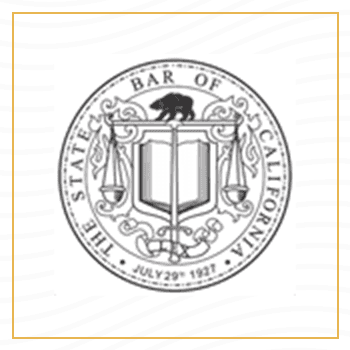
Whistleblower Protection & The False Claims Act
Las Vegas Whistleblower Attorneys
Whistleblowers are typically individuals who have special, detailed and ultimately useful information about fraudulent bills or invoices sent to the government for payment. If a company defrauds the government, and a whistleblower comes forward about the fraud (typically, some sort of false billing), the whistleblower may be entitled to compensation if and when the ill-gotten gain is recovered for the government.
Our firm has hired one of the only few experts on false claims cases in Las Vegas – Mr. Sam Benham. Mr. Benham worked for many years for a firm that represented alleged “white collar criminal” perpetrators being sued under the False Claims Act. Mr. Benham looks forward to prosecuting these cases on ‘the other side of the fence’; that is, suing the wrongdoers instead of defending them
If you or someone you love is in need of whistleblower protection, contact the Las Vegas whistleblower lawyers at Burris & Thomas, LLC today!
Different Types of Whistleblower Cases
The cases which would typically interest us involve some entity intentionally submitted false or fraudulent billings to a federal, state, or city agency.
Examples of these types of cases include the following:
- submitting bills to Medicare or Medicaid for services not actually provided
- renovating government housing projects or resurfacing roads, submitting charges for labor or materials not actually provided
- billing for ‘nurse’ services actually provided by non-nurses
- using unlicensed persons to provide services required to be done by licensed personnel
- using illegal labor when ‘legal’ labor is required under the contract
- using substandard materials in violation of standard materials required under the contract
Consult the Experienced Firm You Can Trust
Very generally stated, the government is given ‘first crack’ at suing the perpetrators to recover the ill-gotten gain. However, if the government is too busy or shorthanded to pursue the case with its own attorneys, then an individual can institute a ‘false claims’ act case against the perpetrators on behalf of the governmental agencies defrauded and is entitled to a ‘reward’ percentage of the ill-gotten gains recovered.
It is imperative that you are well-represented if you are facing a whistleblower case. Get in touch with our Las Vegas whistle blower attorneys today to discuss your delicate situation. We have over 45 years of experience and are prepared to help you navigate your case professionally and compassionately.
Call our Las Vegas firm today for a free case evaluation: (702) 529-3101.
Our FAQ
Have questions? We are here to help. Still have questions or can't find the answer you need? Give us a call at 702-529-3101 today!
-
How much is my case worth?
There are many factors that go into evaluating the settlement value of a personal injury case. It is not a simple matter of applying a formula. Typically, everyone thinks that their case is “simple” and “clear-cut”. Everyone tends to think that the amount of money they are seeking is “fair and reasonable”. That is human nature. However, the reality is that, in the end, a personal injury case is worth what a jury says it is worth. The job of the victim’s personal injury lawyer is to come up with a settlement that reflects the risk of going to trial (odds of winning vs. odds of losing), together with the range of what value a jury might actually return on the case.
In deciding settlement values, we need to consider the following:
- Is fault clear, or contested?
- Are the injuries severe or mild?
- Is there an issue with insurance coverage?
- Is the client a good communicator?
- Is the defendant/wrongdoer likable or unlikable?
Normally, I am able to give a very general estimate range of settlement value and odds soon after taking on a case, with the understanding that these are just estimates and not guarantees. The longer the case goes on, the more definite I can be about the settlement value range.
-
Do I have a personal injury case?
It is often times said by attorneys that in order for there to be a viable personal injury case, there must be “three legs on the stool.” These legs are: liability (or fault); damages (or injury); and collectability (insurance). If any one of the “legs” is missing, then there is not a viable case.
- Liability - A clear example of liability would be someone running through a red light. That person would be at fault. On the other hand, let us say that somebody is hit by a meteorite falling from the sky, and seriously hurt. In that case, although there is injury, there is no earthly entity at fault.
- Damages - An example of damages would be someone getting hit in the nose by an airbag, which breaks their nose. That person has an injury caused by the collision. On the other hand, what if that same person is almost hit by a car running a red light, but by the grace of God is able to avoid the collision? That person might say “I was almost killed, but I didn’t get a scratch.” In that case, the person was not injured and there is no case.
- Collectability - To give an example of collectability, imagine that a drunk driver runs through a red light, and the driver is Donald Trump. In that case, if Donald Trump hit and injured someone when he ran the red light, the victim will be able to collect upon any judgment that they receive. Imagine, on the other hand, that the drunk driver is someone who just got out of prison, and has no insurance and no property. Although that person will probably go to jail, there is no practical way to collect money from him, as he is a “scofflaw” living outside responsibilities of society.
-
What Is the Nevada Statute of Limitations for Personal Injury Cases?
When it comes to filing a personal injury lawsuit, it's important to pay attention to the statute of limitations for the state you're filing in. A statute of limitations is the time limit that a state puts on how long after your accident you are allowed to file a personal injury lawsuit. Statutes vary from state to state.
Nev. Rev. Stat. § 11.190(4)(e) (2016) states that individuals wishing to file a personal injury lawsuit must do so within 2 years of the date of their accident. However, there are certain exceptions that can be made depending on your circumstances. For example, if you have been injured as a result of medical malpractice, you generally only have 1 year to file your lawsuit after the date of your injury (Nevada Revised Statutes section 41A.097).
Statute of limitations can be complex, and if you fail to file your lawsuit within the allotted amount of time your case will most likely be dismissed. Don't put your compensation on the line! Contact our experienced Las Vegas personal injury attorneys today to schedule a free consultation and determine what your next steps should be.






